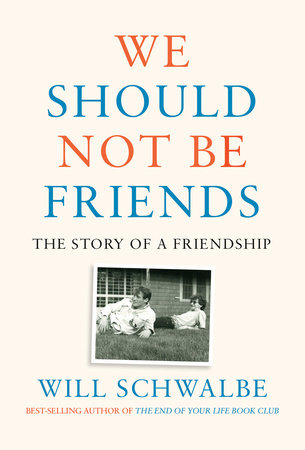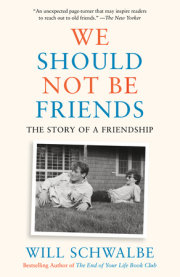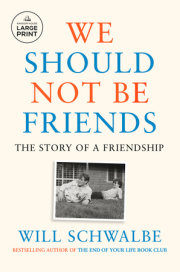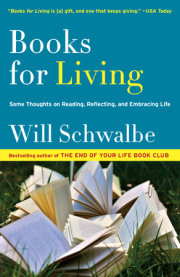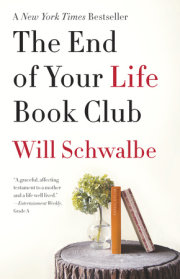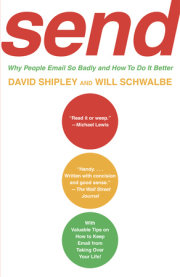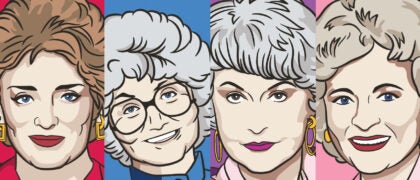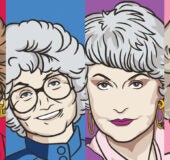Chapter one
Bright College Years
Nerds and Jocks
By the time I was a junior at college, I’d already met everyone I cared to know. I was friends with most of the other gays and lesbians; this wasn’t difficult because, in the early 1980s, not many of us were out of the closet. I was also cordial with most of the lesbians and gays who were still in the closet; it was pretty obvious who they were. I knew the theater people, a group that overlapped almost completely with the gays and lesbians, uncloseted and closeted. I knew many of the people who styled themselves writers. I knew absolutely everyone in my major—there were only a few of us who had chosen to get degrees in Latin and Greek, so it would have been Herculean not to. And I knew a splattering of visual artists, a handful of comparative lit majors, the odd philosopher, and three mathematicians, along with an assortment of other obsessive, quirky characters with whom I’d fallen into conversation in a dining hall line or bonded over the cinnamon toast at Naples Pizza when we should have been studying.
I also knew those I didn’t want to know. The jocks. And they didn’t seem to want to know me. In the dining halls, they filled boisterous tables. They wolfed down epic platters of scrambled eggs. They wore baseball caps backwards and moved in packs. The jocks and I were like planets in different orbits, circling one another but not colliding. I felt that if we did, I would be obliterated.
During the spring of my junior year, I’d taken to wearing a turquoise acid-washed blue jean jacket, and I wore a studded leather wristband that served as a wallet—a souvenir from Los Angeles, where I’d spent the previous term away from school, working in the realer world. I had my hair permed down the center but cut shorter on the sides, in a recent fit of enthusiasm for the artist who was still then known as Prince and also for the look of a singer named Adam Ant. Despite my stylist’s valiant efforts, my hair looked nothing like theirs. But I did look like someone trying very hard not to look like everyone else; I was elaborately disguised as someone who didn’t care what other people thought of me.
I now can’t be sure the jocks gave me much thought at all, but I assumed they didn’t like me or considered me ridiculous, as was suggested by the occasional sneer directed my way. Certainly, many of my women friends, especially the very out lesbians, as well as my more feminine gay friends had contended with derision, menace, and worse from the college jocks. There was good reason to leave space between myself and anyone wearing a letter jacket.
All that dramatically changed at the end of my junior year, when I collided with one jock in particular: Chris Maxey, known to just about everyone as Maxey. From the start it was clear that Maxey and I should not be friends. What was less obvious was that I was much more prejudiced against him than he was against me. Yet we became friends and have remained so for the next forty years—right up to the present day.
Perhaps I didn’t care to know Maxey, but fortunately the matter was taken out of my hands. Because if I hadn’t met him, my life would have been less rich and less fun. Had it not been for Maxey, the me that is here today wouldn’t be me. Also, I never would have learned how to breathe. He tells me I had a similar effect on his life. Except he figured out how to breathe all by himself.
Initiation
Just beyond Yale’s campus, a three-story building composed of limestone blocks presents a sheer, windowless front. An iron fence separates the sidewalk from a moat of carefully tended grass. Two handsome shrubs stand sentry at either side of a short flight of rough-hewn granite steps. The decorative stonework at knee level and around the building’s door makes a nod to Ancient Greece, but there’s no hint as to what lies inside. A gray slate path leads to the unwelcoming black door, the intricate details on its exterior visible only when the sun hits it just right. There was no sun the first time I entered; it was the middle of the night.
Everything began with a visit from my friend Tim. We’d been at high school together; he was a year older. Tim was one of those kids who is equally popular with adults and other teens. He had the floppy hair sported by the stoners in our class, but his wry smile and willingness to chat with anyone set him apart from the floppy-haired kids who wouldn’t meet an adult’s eye.
Once I arrived at Yale, Tim and I kept in touch the way students did in the early 1980s before mobile phones and personal computers. We had phones in our rooms (where we rarely were) but no answering machines—so calling one another almost always resulted in endless ringing.
Instead, we would drop by unannounced and leave notes on someone’s door if a knock went unanswered. The visit from Tim that would change my life came in early 1983, in the spring of my junior year, when he stopped by my room to ask if I could join him for lunch the following day.
Tim didn’t seem surprised by the number of Matt Dillon posters I had on my walls. At the time, I lived for Matt Dillon but had to make do with pictures of him in his first five movies:
Over the Edge Matt,
Little Darlings Matt,
My Bodyguard Matt,
Tex Matt, and
Liar’s Moon Matt. In my small dorm room, that left only enough wall space for a modest corkboard.
The next day, as arranged, we met up at the dining hall, dutifully stood in line with our trays, helped ourselves to sandwiches and coffee—I drank about a dozen cups of coffee a day throughout college—and found an empty table. I assumed that it would just be the two of us, but as soon as we sat down, we were swarmed from all sides by friends of Tim who had been loitering in the vicinity. None of them seemed to have anything in common—a girl I knew only by face; a jock I’d never seen before, but not the threatening kind; a few other kids I couldn’t immediately classify. Sure, they could join us. High school gossip could wait.
Tim asked me a series of questions about myself—which was odd because they were mostly ones to which I was certain he already knew the answers.
Where had I grown up? Cambridge, Massachusetts.
Activities during high school? A lot of theater and also debating, but I’d stopped debating after a beloved classics teacher told me that it was sophistry and that I would condemn my soul to eternal damnation if I continued to do it.
Sports? Not if I could help it.
Music I liked? In high school, I’d listened to punk rock, country ballads, bluegrass, Bruce Springsteen, and show tunes; now, I preferred new wave and disco, with Blondie and Hazell Dean in constant rotation. And Prince, of course. Nothing compared 2 him.
Before long, despite the oddity of the situation, I’d segued into a monologue that required no prompts. I told Tim’s friends how I’d just come back from a term away from college in Los Angeles, but explained that I could graduate with my class because I had some extra credits towards my major; I talked about being part of the university’s gay student group and how far we’d come from meeting furtively on the edge of campus when I joined as a freshman to now co-hosting Gay and Lesbian Awareness Days; I described how I’d become involved with Gay Men’s Health Crisis, a group in New York City that had recently been formed to help people with a new disease called AIDS.
I loved the lunch, of course—what was not to like? What a remarkable friend I had in Tim, I later said to myself, and what a wonderful group of friends he has! It didn’t occur to me that the lunch had accomplished anything other than spotlighting how effortlessly I had managed to captivate such a random and diverse group of seniors. Of course, I had asked Tim’s friends some questions about themselves, as well. Or had I?
Some weeks later, by which time I had acquired another Matt Dillon poster (
The Outsiders Matt, now covering my corkboard and whatever reminders had been pinned to it), Tim stopped by my room again.
“You might have guessed that our lunch was an audition of sorts,” he said.
“Yes,” I lied. “I figured as much.” In fact, I had no idea what he was talking about.
That’s when Tim told me that he was in a secret society and that the other seniors who had joined us were some of his fellow members. Had I ever noticed a granite building on the edge of campus? That was the hall where they’d been gathering twice a week all year. Now, they were in the process of choosing fifteen juniors to replace themselves. Those juniors would inherit the hall, would meet there throughout the coming year, and then choose their own successors in turn. If the current members chose me, would I want to join?
I was confused. The only secret society at Yale I’d ever heard of was Skull and Bones, famously all male and symbolizing much that was wrong not just with Yale but with the country as a whole. Tim was expecting this.
“Before you say no, I need to tell you a few things,” he continued. “We are one of the oldest secret societies and have a decent amount of money. That means it doesn’t cost you anything to join or belong. That also means the new students each year come from all different kinds of economic backgrounds. We also admitted women the same day Yale did.
And we try to bring together the fifteen most different kids we can find so you’ll meet people who are nothing like you.”
“What about the gay thing?”
Tim laughed. “Not a problem. In fact, it’s a plus.”
I still wasn’t sold. “What do you have to do to belong?”
“Just show up,” Tim said. “But you have to show up. It’s two dinners a week for your entire year. You aren’t supposed to miss a single one unless you really have to. Oh, and then there are the audits. But I’ll tell you about those later.”
“And how secret is this place?”
“Not very,” Tim explained. “I mean, you can tell people about it, just don’t be a jerk—the idea is not to make a big deal out of it. Oh, and you can also take your friends there anytime except for the two nights when you have the dinners—but only other seniors.”
I couldn’t think of a good reason to do it. I mean, I already knew everyone I needed to know—and two dinners a week was a big commitment. Still, I trusted Tim, and he’d obviously said yes when he was asked.
“How’s the food?” I asked.
“Excellent,” Tim replied.
“Oh, and one more question: Are there free drinks?”
“Unlimited account at the liquor store and a keg in the basement.”
That changed the calculus: unlimited alcohol seemed well worth two nights a week. “There’s also a pool table,” Tim added. This wasn’t of interest; I didn’t play pool. Then Tim delivered the coup de grâce. “And there’s a television with cable.”
Cable meant MTV, the music channel that had launched two years before. And MTV meant Prince videos.
“Okay then. Tell them that if they ask, I’ll say yes.”
Tim smiled but couldn’t let it go at that. “This is going to change your life,” he told me. Then he added, “It’s going to open you up.” I found this curious. I thought I was already as open as I could be.
Copyright © 2023 by Will Schwalbe. All rights reserved. No part of this excerpt may be reproduced or reprinted without permission in writing from the publisher.





